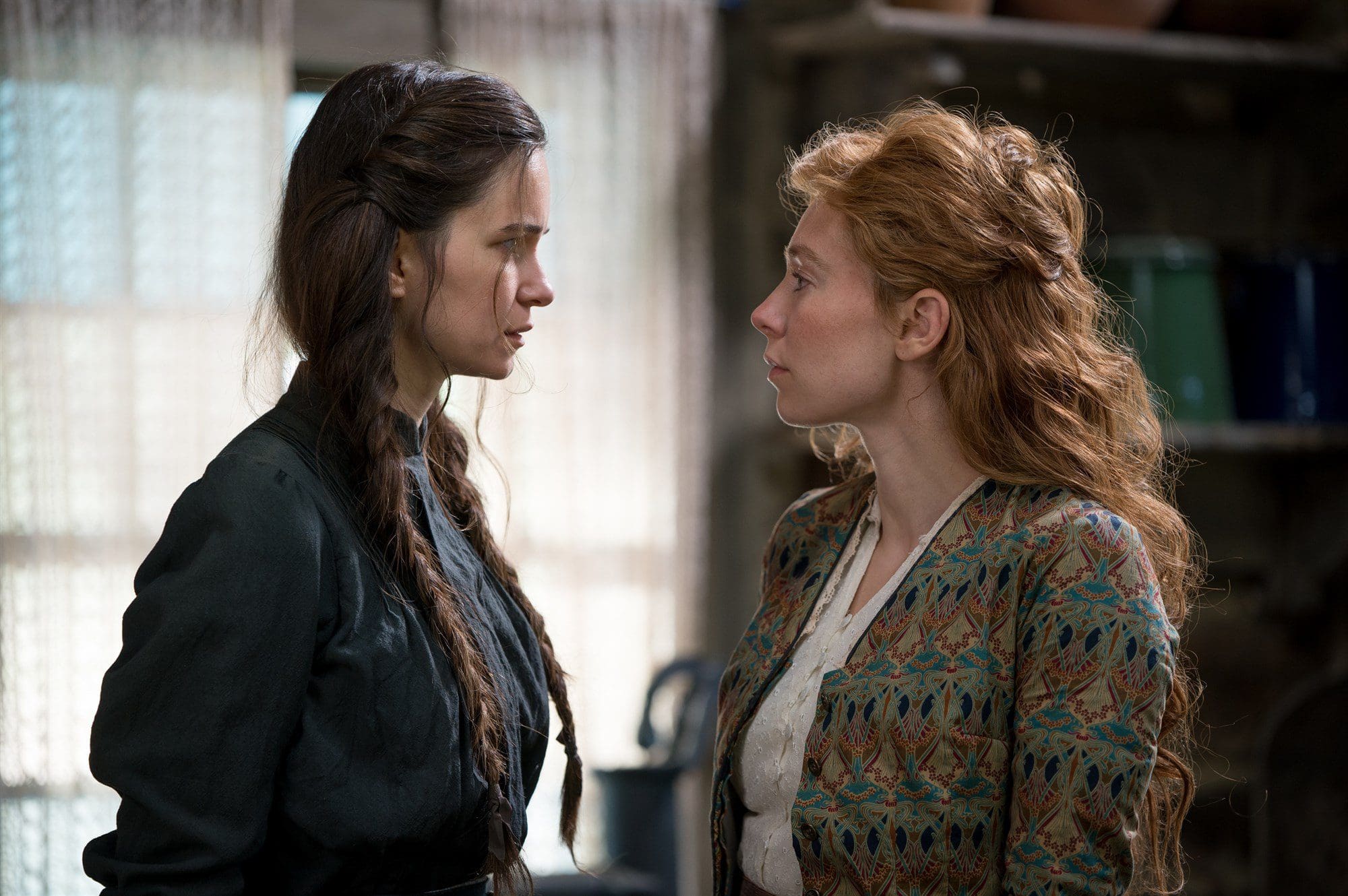
Written by Sam Niles
Being an LGBT love story set in 1856, The World To Come doesn’t pretend this was a tolerant time for the community. But it explores this intolerance not through homophobes lecturing on the supposed sin of homosexuality. Rather, it focuses on the heteronormativity that informs that homophobia, and it explores this issue in the purest way it can: by focusing on domestic drama.
The film isolates the viewer with its opening shot. Resembling a horror film, especially with that eerie score, the disorienting image looks to the sky from the ground of the forest, and slowly pans looks down to show us Abigail (Katherine Waterston) and Dyer’s (Casey Affleck) farm.
The following scenes show their life, and what immediately stands out is how varied this environment feels. Despite showing the same locations, the house, the farm, the field, each shot manages to feel like it reveals something new, as though each moment in this same location is wholly different.
The contrast of the first shot and the “simple life” images is the heart of Abigail and Dyer’s marriage. Abigail feels trapped while Dyer pleads, “What’s wrong with the life we have? It’s not so bad, we have a view!”
While Abigail seems to care for her husband, it is indeed that bad. She struggles with the death of their daughter, whose sickness Abigail had to confront on her own. Dyer’s passive “life isn’t so bad” attitude comes through on subjects as simple as how Abigail spends her own money. When she talks about buying an atlas, Dyer questions this, asking why she doesn’t just get a gift for her husband.
Dyer isn’t a malicious bastard. He’s an obliviously selfish oaf, but even an oblivious oaf is oil to Abigail’s water.
Far more compatible for Abigail is Tallie (Vanessa Kirby). The two catch glimpses one day and from this passing moment, a friendship develops. It stems from a sympathy both are missing in their lives. While Dyer is perplexed when Abigail wants an atlas, Tallie gives her one as a birthday present. When Abigail is silent on the subject of her deceased daughter, Tallie responds with a simple “I understand.” There’s no obliviousness on Tallie’s part, because she can read Abigail like a book.
This friendship soon escalates to more than just a friendship. Abigail’s household tasks take a backseat to this relationship, and so does her facade with Dyer. When a smiling Abigail thinks Tallie has arrived, Dyer is quick to notice that the smile fades when she realizes it’s just him. Moments later, when Tallie does arrive, he’s equally quick to notice “that smile returns.”
Dyer’s passive aggressive, oblivious attitude is a bad enough obstacle for the two. But it’s nothing compared to the controlling viciousness of Tallie’s husband Finney (Christoper Abbott). The dichotomy of the two husbands is interesting. They may come from different backgrounds, but they’re both men who are just fine with the world as it is. However, while Dyer is content with his little slice of the world, Finney won’t stop until he has it all. The suffering of others is romanticized because the good lord wills it. Tallie denying him sex is not met with an annoyed acceptance but drunken abuses of scripture.
Their respective marriages, at first, influence Abigail and Tallie’s time together. They need to be understood, to be held, to escape. But the very things that bring them together soon start to tear them apart. Dyer can be snuck around and partly reasoned with, but Finney’s “god-ordained” control over his wife ultimately threatens Abigail and Tallie’s time, their love, and their lives.
And without so much as showing a single bible thumping priest, this is how The World to Come portrays homophobia and where it stems from. The word “homosexuality”, or its more period relevant synonyms, aren’t even mentioned in the film. It’s as if the heteronormative and misogynist structures are so dominant that any deviance from them is unspeakable.
The World To Come shows us otherwise. It does so through the beauty of its romance and the misery of their marriages. It shows us a love that dare not be spoken and what happens when we can’t speak of it. As a result, the film is a tough but powerful watch—provided you can stomach the difficulties that come with it.

